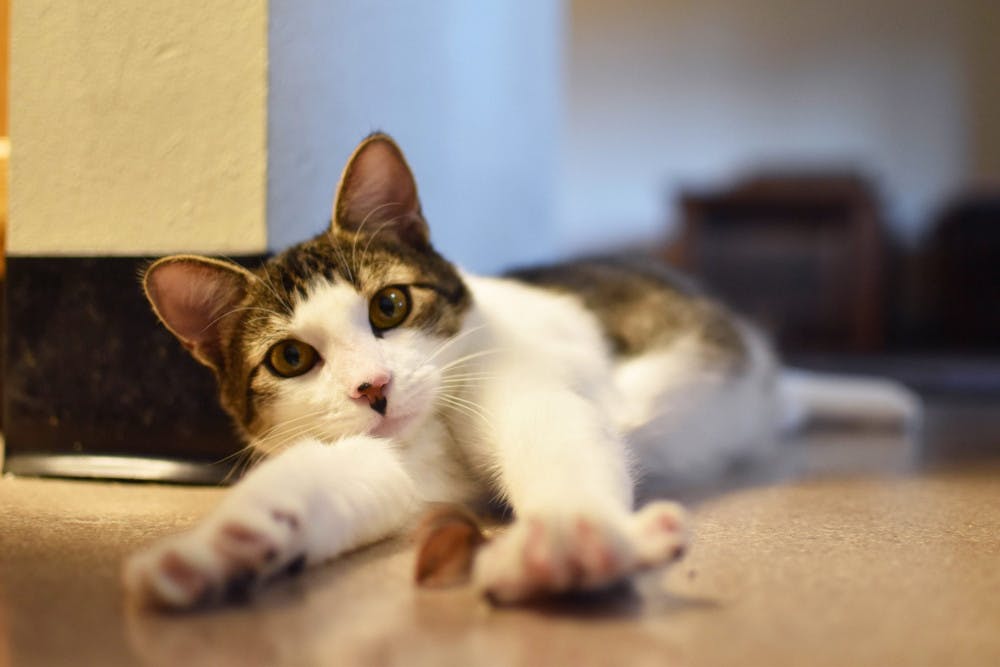
Editorial opinion by Emily Feek
There are so many reasons that starting college is a difficult time, and for some of us, that’s because we’re leaving behind our furry, feathered or scaly friends. College dorms aren’t exactly conducive to pets.
But some college students do have animal companions on campus, whether they serve as service animals or emotional support animals (ESAs). Either way, these animals aren’t pets — they have a job they fulfill.
Even if both service animals and ESAs perform necessary tasks, ESAs might be better off outside of college housing
As with all relationships, the relationships we have with animals are transactional. We get so much out of relationships with our pets — companionship, happiness, a sense of fulfillment, the list goes on. But what do we give our animals in return?
The obvious answers are food, water and shelter. But those things aren’t enough. We have to consider that every animal is unique and will have their own needs, and we can’t necessarily meet all of those needs in a dorm room, either.
When you see an animal on campus, there’s a good chance you’re reminded of how much you miss your own pets, if you have them back home. We have to consider, too, that there’s a reason we didn’t bring our pets with us, and it’s probably not just because we didn’t do the ESA paperwork.
Not all animals do well in a dorm environment. Think about how we feel in a confined space — if you don’t get out often, cabin fever starts to set in. It isn’t that having an ESA or service animal in a dorm is unethical on principle, it’s that it’s an environment that isn’t right for all of them.
In 2015, The New York Times published “Campuses Debate Rising Demands for ‘Comfort Animals,” an article looking into the rising numbers of ESAs and how college campuses have responded to them.
For animals like cats and dogs, it’s just a matter of handling paperwork and having students go through a training session that outlines your rights with an ESA and university expectations; Western is no different.
Other animals can pose problems. The article discussed a student at the University of Washington who had a pig as an ESA. Because the dorms weren’t designed with the intent to accommodate a pig, it wasn’t a pleasant experience. The pig was too big to wash in university bathrooms (note that Western has a policy against using university showers and sinks to bathe ESAs and service animals) and ended up damaging the dorm as well, the article said.
It didn’t even address whether the pig was happy and healthy in the dorm environment, but then again, animal emotions are something of an unknown quantity.
It’s understandable that universities have restrictions as well. The rules and standards in place aren’t just about protecting university property and other students, but about ensuring the well-being of animals.
“Animal Housing: Emotional Support Animals on Campuses” was published in the Journal of College & University Student Housing to address some of the common concerns around legal protections and practical considerations of housing ESAs.
Adding animals to already-cramped residential dorms requires some regulation. Some of these include only allowing ESAs in designated areas on campus and requiring animal handlers not to leave animals unattended overnight. These rules aren’t just for the sake of the university, but for the well-being of the animal, the article said.
If you think about it, some of the same considerations go into adopting animals to begin with. At the Whatcom Humane Society, a comprehensive cat adoption application requires information about how long a pet would be left unattended and what the living environment is like, among other extensive topics.
The ethics of taking care of animals isn’t something that’s new with ESAs and service animals. Everyone has an ethical obligation to their animals, whether they’re pets or not. Being in a college dorm doesn’t negate that fact.
While it’s important to take care of your mental health, we have to also consider how our actions impact others. You’ve probably heard it said before that your well-being shouldn’t come at the cost of someone else’s.
That holds true even if the someone else isn’t human.





